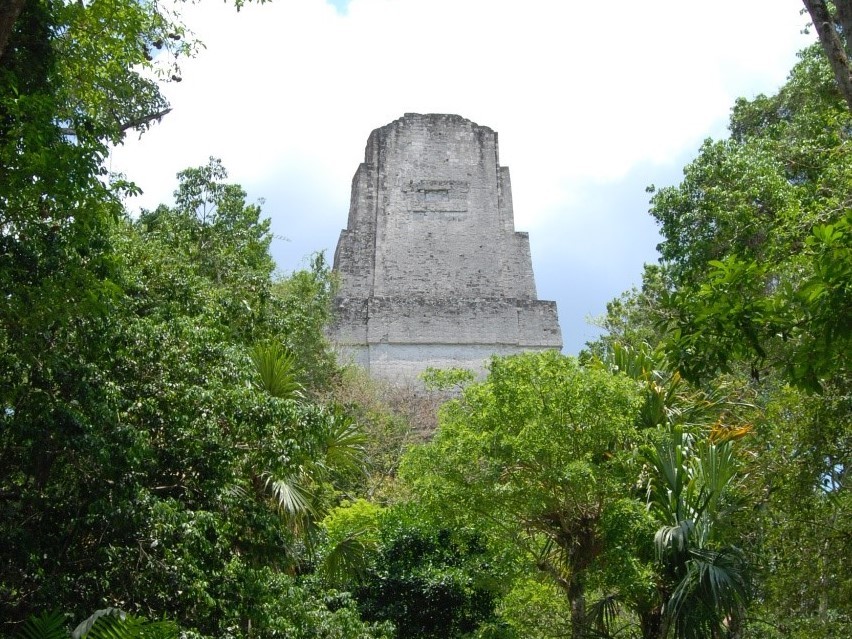
Smithsonian: UC finds pollution in ancient Maya city
A multidisciplinary team found toxic mercury and cyanobacteria in reservoirs
Smithsonian Magazine examined University of Cincinnati research that found evidence of toxic water pollution in reservoirs in the ancient Maya city of Tikal.
A multidisciplinary team of biologists, chemists, geographers and anthropologists studied former reservoirs found in Tikal in what is now northern Guatemala.
Their geochemical and ancient DNA analyses discovered toxic levels of mercury and blue-green algae or cyanobacteria that likely would have made people who drank the water sick.
The water pollution coincided with a time of severe droughts in the ninth century shortly before the city's population began to decline sharply.
Tikal dates back to the third century B.C. and was a thriving city supported by local agriculture. It's famous for its towering stone temples that rise above the rainforest.
UC's study was published in the Nature journal Scientific Reports.
“The conversion of Tikal’s central reservoirs from life-sustaining to sickness-inducing places would have both practically and symbolically helped to bring about the abandonment of this magnificent city,” the study concluded.
UC biology professor David Lentz, the study's lead author, said their findings help explain the depopulation of Tikal.
“Archaeologists and anthropologists have been trying to figure out what happened to the Maya for 100 years,” Lentz said.
Featured image at top: A temple at the ancient city of Tikal rises above the rainforest. Photo/David Lentz

UC researchers Nicholas Dunning, left, Vernon Scarborough and David Lentz set up equipment to take sediment samples during their field research at Tikal. Photo/Liwy Grazioso Sierra
Related Stories
UC hosts governors for bipartisan conversation
Event: October 21, 2025 5:30 PM
The University of Cincinnati welcomes Ohio Governor Mike DeWine and Kentucky Governor Andy Beshear for a conversation on policy and leadership. The discussion, titled "Across the River and Across the Aisle," will be moderated by former U.S. Sen. Rob Portman and is being sponsored by the Portman Center for Policy Solutions.
Could a Cincinnati bank merger create more jobs?
October 10, 2025
David Brasington, economics professor at the University of Cincinnati's Carl H. Lindner College of Business, spoke to WLWT on what the potential merger could mean for the queen city.
Do plastics have toxic effects on the heart?
October 10, 2025
We’ve all heard warnings about BPA — a chemical found in plastics and personal care products. Studies show that nearly 90% of Americans have detectable levels of BPA in their bodies. Now, University of Cincinnati College of Medicine research has revealed this everyday exposure is tied to changes in the heart’s electrical system.
